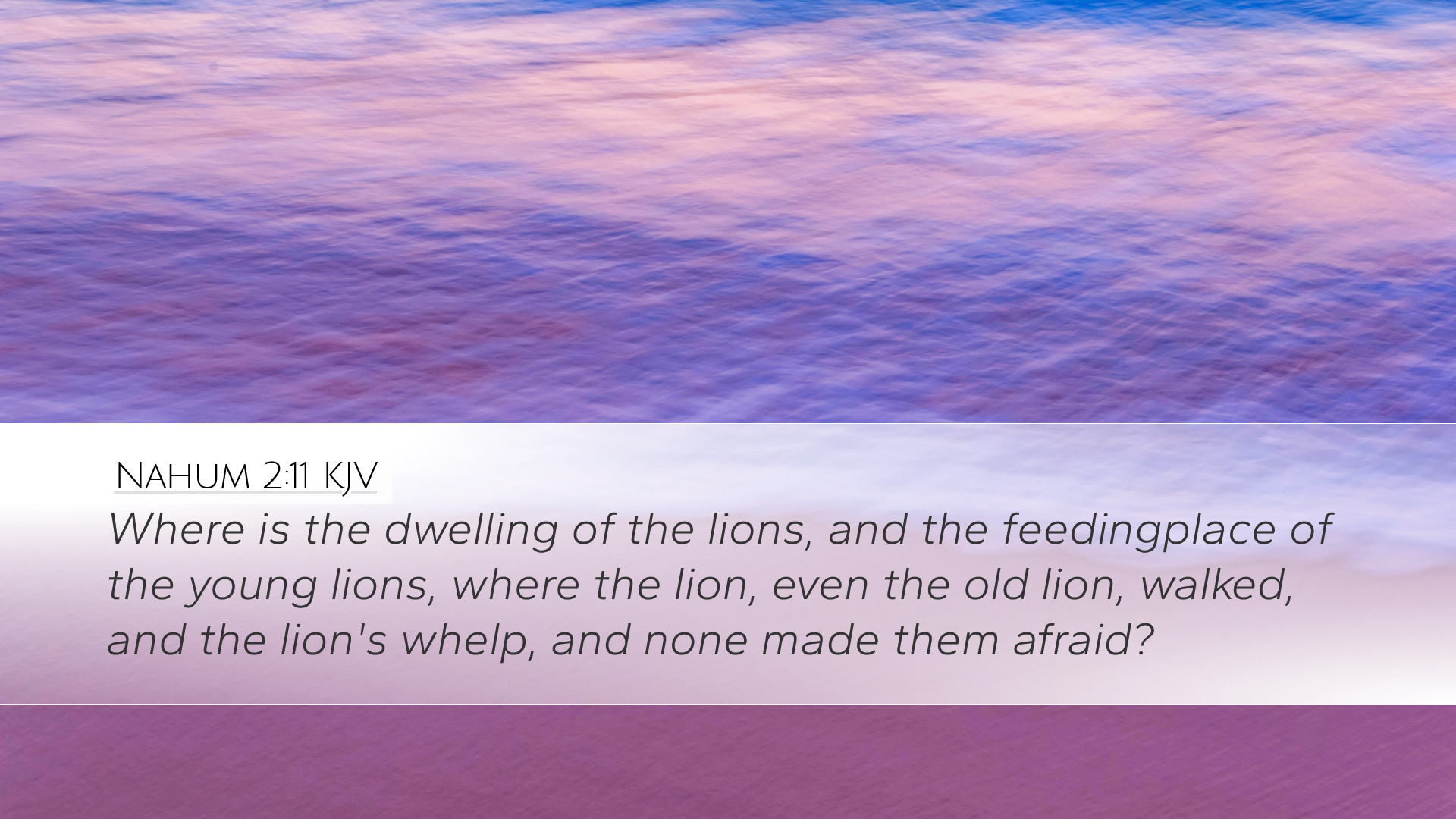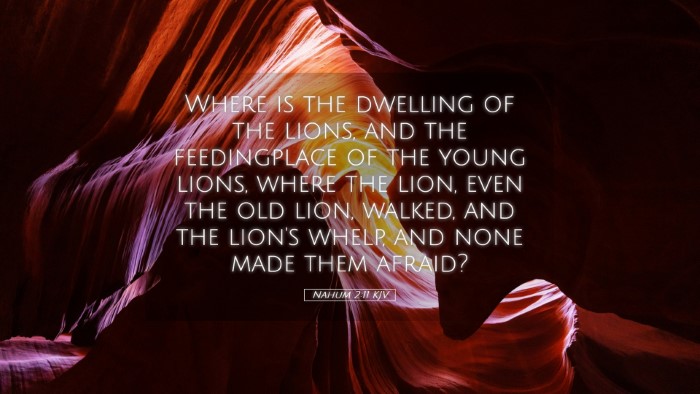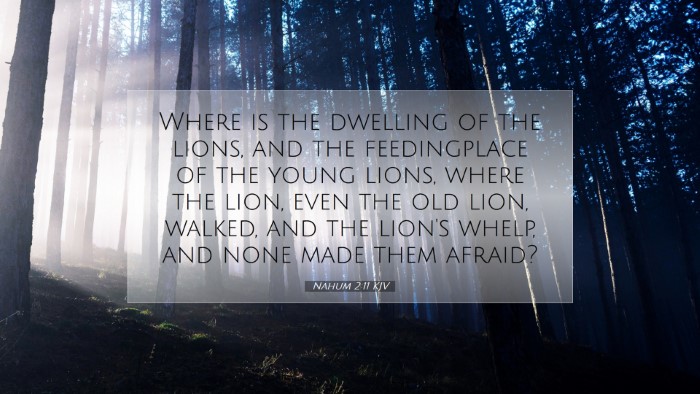Old Testament
Genesis Exodus Leviticus Numbers Deuteronomy Joshua Judges Ruth 1 Samuel 2 Samuel 1 Kings 2 Kings 1 Chronicles 2 Chronicles Ezra Nehemiah Esther Job Psalms Proverbs Ecclesiastes Song of Solomon Isaiah Jeremiah Lamentations Ezekiel Daniel Hosea Joel Amos Obadiah Jonah Micah Nahum Habakkuk Zephaniah Haggai Zechariah MalachiNahum 2:11
Nahum 2:11 KJV
Where is the dwelling of the lions, and the feedingplace of the young lions, where the lion, even the old lion, walked, and the lion's whelp, and none made them afraid?
Nahum 2:11 Bible Commentary
Commentary on Nahum 2:11
Nahum 2:11 reads: "Where is the dwelling of the lions, and the feeding place of the young lions, where the lion, even the old lion, walked, and the lion's whelp, and none made them afraid?"
Contextual Background
Nahum prophesies the impending doom of Nineveh, the capital of Assyria, known for its power and cruelty.
This verse serves as a poignant rhetorical inquiry that emphasizes the fall of a once-mighty nation that terrorized others.
Verse Breakdown
1. The Imagery of Lions
The lion is a symbol of strength, dominance, and fear. In Nahum's metaphor, it represents Nineveh itself, which was once the apex of power and imperial pride. Each element in this metaphor serves to draw attention to Nineveh's past glory:
- "Dwelling of the lions": Refers to the city as a fortress of power.
- "Feeding place of the young lions": Speaks to the continuity of strength passed down through generations.
- "Old lion": Represents the established authority, aged but still formidable.
- "Lion's whelp": Indicates the potential future strength of the city.
2. The Absence of Fear
The rhetorical question, "and none made them afraid?", highlights the juxtaposition of the lions’ once-feared dominance with their imminent demise. This question serves two purposes:
- It expresses the shock of the impending fall.
- It serves as a foreshadowing of the desolation that will follow.
Theological Insights
This verse has rich theological implications, demonstrating that no matter how seemingly invincible a power may appear, it is still subject to the will of God. The commentary by Matthew Henry underscores this:
"The Lord rules in the kingdoms of men; and when He has determined to pull down a mighty nation, though it may be built by lions, and defended by its youthful offspring, it cannot stand."
Albert Barnes emphasizes the certainty of God's judgment upon those who exalt themselves in pride:
"The question implies a total desolation: the place which was once filled with strength will become but a memory, as God brings His judgment upon it."
Historical Significance
The historical context of Assyria’s cruelty and dominance over Israel cannot be overstated. Adam Clarke notes:
"Nineveh, being the capital of a nation that was often God's rod of chastisement against Israel, serves as a representation of the oppressor which God will ultimately conquer."
Reflection for Scholars and Pastors
For pastors and theologians, this verse serves as a reminder of the transient nature of earthly powers. Just as Nineveh faced judgment, so do all nations that act contrary to God's will. Pastoral applications might include:
- Warning against pride: Leaders and nations must remain humble and recognize their accountability before God.
- The hope of justice: There is a promise that God will avenge the oppressed.
- The call to repentance: Nations and individuals must turn from wickedness to escape judgment, just as Israel was called to do.
Conclusion
Nahum 2:11 is a powerful depiction of both the might and eventual downfall of a powerful city. The vivid imagery invites deeper reflection on God’s sovereignty over history and the eventual triumph of justice. The insights drawn from public domain commentaries offer a profound understanding of the passage and its relevance for believers today.


